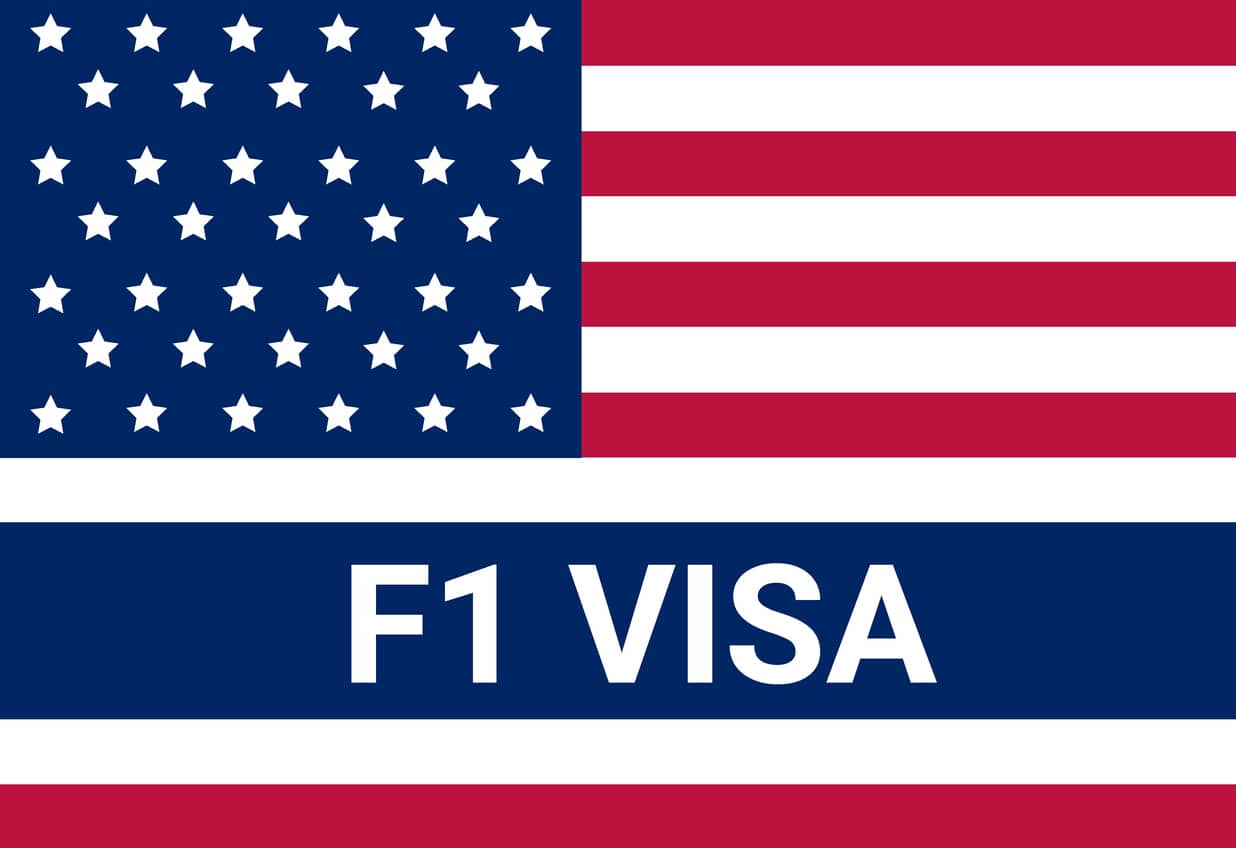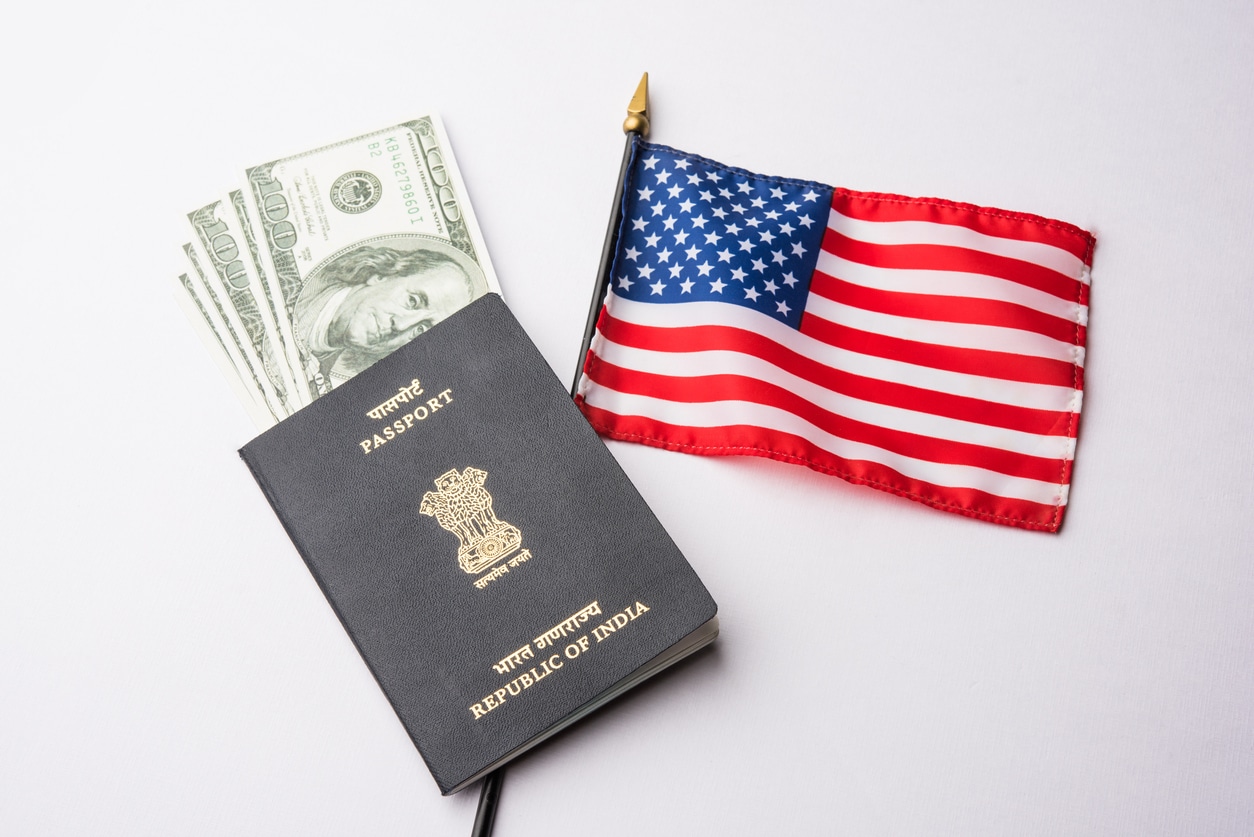Are you excited about the prospect of studying abroad?
It can be an enjoyable experience, but it can also be challenging, especially if it’s your first time. To prepare to study abroad, you need to understand the process involved. This includes studying for exams and learning a new language if necessary.
Additionally, you may come across unfamiliar terms and acronyms during the application process and while making arrangements for your move. Different universities and locations use different expressions and phrases, which can be confusing.
To help you navigate this process, we have created a glossary of popular study abroad terms, as well as information on the application and visa processes. Whether you plan to study abroad for a term, a year, or your entire degree, this glossary will provide you with the necessary information to help you succeed and make the most of your experience.
A
- Acceptance Letter
- This is a letter you get from the university once they’ve accepted you into their program.
- Academic Advisor
- This is the person who guides you on course choices, educational requirements, and your study plan.
- Academic Credit Transfer
- This is how credits you earn abroad are counted towards your degree back home.
- Accommodation
- This is where you’ll stay while studying abroad, like a dorm, apartment, or homestay.
- Application Deadline
- This is the last date you can submit your application to be considered for the program.
- Application Essay
- This is a written piece explaining why you want to study abroad, your goals, and your background.
- Application Fee
- This is the non-refundable fee you pay when submitting your application to a foreign institution.
- Articulation Agreement
- This is an official agreement that shows how credits will transfer between two institutions.
- Athletic Scholarship
- This is a scholarship based on your athletic ability, which can help fund your study abroad.
- Audit a Course
- This is when you take a course for no credit, usually to gain knowledge without grades.
B
- Bank Statement
- This is a document that shows you have enough funds to support your studies, often needed for your visa.
- Bachelor’s Degree
- This is the degree you usually complete before studying abroad, awarded after finishing an undergraduate program.
- Budgeting
- This is the process of planning out your finances to cover study abroad costs like tuition, housing, and travel.
- Buddy Program
- This is a program that matches you with a local student to help you adjust to your new surroundings.
- Branch Campus
- This is a university’s campus located in another country where you can study abroad without transferring schools.
C
- Cultural Adjustment
- This is the process of getting used to a new culture, including its language, customs, and social norms.
- Cultural Exchange
- This is a program that lets you experience another culture firsthand, promoting mutual understanding.
- Course Syllabus
- This is the outline of topics in a course that can be essential for transferring credits to your home institution.
- Course Selection
- This is the process of picking classes abroad that will count toward your degree back home.
- Cost of Living
- This is the total money you’ll need for daily expenses like housing, food, and transport while abroad.
- Credit Load
- This is the number of credits you’re enrolled in during your study abroad term, which can affect your visa and academic progress.
- Curriculum Vitae (CV)
- This is a detailed record of your academic and work history, often needed for internships abroad.
- Consular Services
- These are services from your country’s embassy, like visa help or emergency aid while you’re abroad.
D
- Declaration of Financial Support
- This is a document showing you have enough funds for tuition and living costs, usually needed for a visa.
- Degree Audit
- This is a review of your academic progress to ensure study abroad courses will count toward your degree.
- Diploma
- This is the certificate you get when you complete your course of study, often required to graduate.
- Documentation
- These are the papers you need for applications, visas, enrollment, and other parts of studying abroad.
- Dual Degree
- This is a program where you earn two degrees, possibly from institutions in different countries, through combined study abroad.
E
- Exchange Agreement
- This is a formal agreement between two schools, setting the terms for student exchanges between them.
- Exchange Program
- This is a program where you study abroad for a certain period but stay enrolled at your home institution.
- Erasmus+
- This is an EU program that supports study abroad, training, and exchanges within Europe.
- Enrollment
- This is the process of registering and being admitted into a study abroad program or school.
- Enrollment Verification
- This is an official document proving you’re enrolled, often needed for visas or scholarships.
- Equivalency Evaluation
- This is the process of checking if your abroad courses match those required by your home school.
- Exchange Student
- This is a student who attends a foreign school temporarily while staying enrolled at their home institution.
F
- Fellowship
- This is a scholarship or grant awarded to support your studies or research abroad, often based on merit or specific criteria.
- Financial Aid
- This is financial help, like scholarships, grants, or loans, to cover the costs of studying abroad.
- Flight Booking
- This is the process of reserving your airline tickets for travel to and from your study abroad location.
- Foreign Language Proficiency
- This is your ability to speak, read, and write in another language, often needed for specific programs.
- Form I-20
- This is a document from a U.S. school that proves you’re eligible for an F-1 visa.
- Fraternization Policy
- These are rules about interacting with locals and ensuring appropriate behavior while studying abroad.
G
- Graduate Program
- These are third-cycle programs, such as Masters and PhD postgraduate programs with the possibility to study abroad.
- Guidebook
- This is a resource—a must read with culture, customs, tips and contacts—all about your study abroad destination.
- Grant
- This is financial help used to fill in some of the study abroad expenses but needs to be applied for separately.
- Group Housing
- Students live together, generally according to the study abroad program or host school, in this case this is called shared accommodation.
H
- Homestay
- It is an accommodation where you live with a local family and learn about daily life, how the family and the people who live the life you would like to experience customs, life, and traditions.
- Health Insurance
- This is medical coverage focused on you during your time abroad and how to protect you from unexpected healthcare expenses and emergencies. This usually comes in the form of health insurance which is typically a visa requirement.
- Housing Permit
- It is official permission to live in the hosting countries or school’s housing accommodations. International students have to take care of their legal compliance and are required to stay in some of the residences through housing permits.
- Host Institution
- This is where you’re going to enroll in a school or university abroad, where you’re going to take classes and follow your study goals. During their program, visiting students have access to academic resources and campus facilities, as well as support from the host institution.
- Host Family
- It is the family that invites you into their house as part of a homestay program, where you get to stay and experience a culture. They (host families) support you as you adapt, helping you understand local customs, traditions and getting you comfortable in a new place.
To learn more about studying abroad, check out our free courses, which will help you to start your study abroad preparation, and guide you through the process and stages effectively.
- Complete TOEFL Preparation free course.
- Complete IELTS Preparation free Course.
- GRE preparation free course.
- Learn Business English for free.
- How to write a SOP(Statement of Purpose) free course.
- GMAT preparation free course.
- STEM scholarship for study abroad.
I
- Immigration Visa
- This document allows you to enter and stay in a foreign country for studies, usually as a student visa. It’s essential for legal residency during your program.
- International Student Office (ISO)
- This university office assists international students with visas, cultural adjustment, and academic matters, offering essential support for studying abroad.
- Internship Abroad
- A work opportunity abroad that offers real-world experience in your field, often part of a study program to enhance practical skills.
- Intercultural Competence
- The skill of communicating with people from different cultures, developed through study abroad experiences for effective cross-cultural interaction.
- I-901 SEVIS Fee
- A required fee for international students paid to the U.S. Department of Homeland Security, essential for obtaining and maintaining a student visa.
J
- J-1 Visa
- This is a visa that lets you join work and study exchange programs in the U.S., allowing you to stay temporarily for your studies.
- Joint Degree
- This is a program where two or more schools team up to offer one degree, usually including study abroad.
- Journey Abroad
- This is the experience of traveling to another country for your studies, covering both the trip and the cultural immersion.
Explore Your Future with Great Learning’s Study Abroad Programs!
Enjoy savings of up to 1/3rd on your degree cost!
No GRE/TOEFL needed to apply.
Secure a Post Study Work visa in the USA or Germany.
K
- Knowledge Transfer
- The study abroad programs are the sharing of skills and expertise from students to institutions as well as other institutions internationally.
- Kinship Networks
- These are connections and support systems, built with other students, alumni and locals along the way.
L
- Language Immersion
- This is a study method where you’re entirely surrounded by the host country’s language, helping you learn faster.
- Language Proficiency Test
- This is an exam that checks your skill in a foreign language, usually needed for language-based study programs.
- Letter of Intent
- This is a document that will explain to the reader your goals in studying abroad, which is generally part of the application.
- Letter of Recommendation
- It is this letter from a teacher or employer to support your travel abroad application.
- Living Expenses
- These are costs for essentials like housing, food, and transport while studying abroad.
- Loan for Study Abroad
- This is financial support from banks or institutions to help fund your studies abroad, with repayment required.
M
- Major
- This is the main area of study for your degree, which you may continue abroad.
- Major Declaration
- This is the formal choice of your main study area, ensuring course compatibility abroad.
- Medical Examination
- This is a health check needed for a visa, confirming you’re fit to study abroad.
- Mentorship
- This is guidance from experienced people who will support you during your study abroad journey.
- Module
- This is a part of a course that can be easily transferred into modular study abroad programs.
- Multiculturalism
- This is the mix of different cultures in your study destination, letting you experience diverse perspectives.
N
- Nationality
- This is your national identity, and it will affect visa needs and eligibility for specific programs and scholarships.
- Nomination Letter
- This is a letter from your home institution supporting your application for specific scholarships or programs.
- Non-Refundable Fee
- It’s a payment for applications or services you’ll be paying anyway, which you’ll have to enroll to maintain.
- Non-Discrimination Policy
- This is a policy ensuring equal access to study abroad for all students, regardless of personal characteristics.
O
- Orientation
- This is an introductory program where we will take you on campus tours and out to workshops so you can adjust to the new education culture you are in.
- Online Application
- This is a digital method for submitting application forms and documents for study abroad programs, streamlining the process.
- On-Campus Employment
- It includes job opportunities for students inside the institution, subject to increases with immigration or issues with work hour statements.
- Overseas
- It’s a word used to describe locations or activities in a foreign country while studying abroad.
- Optional Practical Training (OPT)
- This is a period for F-1 visa students in the U.S. to work in their field after completing their academic program, which is relevant for those studying abroad in the U.S.
Getting Preparation done is easier said than done. To make sure that you prepare well for your study abroad program, you can check out our free courses to enhance your knowledge and expand your preparation view.
- Spoken English Free Course.
- Duolingo English Test(DET) Prep essentials free course.
- How to write a Letter of Recommendation(LoR) free course.
- Scholarships and Financial aid for Study Abroad Free Course.
- How to apply for Study Abroad Programs?
P
- Passport
- It’s an official government document necessary for international travel and visas.
- Part-Time Work
- This includes employed students who favorably study abroad only to the point that the visa classification may restrict their job opportunities to the extent of paying for living expenses.
- Pre-departure Orientation
- It is a preparatory session for practical and cultural information for students to adapt upon arrival abroad.
- Program Fee
- Costs related to enrollment in the study abroad program include tuition, materials, and support services.
- Proof of Enrollment
- This is documentation confirming that a student is registered in a study abroad program, often required for visas and scholarships.
- Program Coordinator
- These individuals manage study abroad programs and support students through their experience.
- Progress Report
- It is used to make regular updates about a student’s academic performance while studying abroad, which is required by a home institution most of the time.
- Profile
- This is a summary of a student’s academic and personal information used in applications to match them with suitable study abroad programs.
- Program Advisor
- This staff member offers guidance and support to students throughout the study abroad process, from application to return.
- Program Length
- This indicates the duration of a study abroad experience, which can vary from a few weeks to an entire academic year or more.
Q
- Quota
- This describes the number of limited places in a study abroad program or a way a particular scholarship has been funded.
- Quota Visa
- This is a visa subject to a specific limit, which affects how many students from a particular country can apply or be accepted.
- Quality Assurance
- Measures and standards that establish that study abroad programs deliver a high-quality educational experience that meets accreditation standards are included.
- Qualification Requirements
- These are the criteria that students must meet to be eligible for study abroad programs, including academic performance and language proficiency.
- Questionnaire
- This is a series of questions used during the study abroad application process to assess a student’s suitability and preferences for specific programs.
- Quarantine Requirements
- There are also health and safety measures that we may need to do when we land or restudy abroad due to a destination’s global health concerns.
R
- Reimbursement
- The process of receiving refunds for certain items spent on the study abroad program, usually through a home institution or a sponsor.
- Residence Permit
- A document, legal approval from a country’s official whom a student can stay in for the period of study with an accompanying visa.
- Reputation
- The prestige or standing of an educational institution, which influences your choice of study abroad and future opportunities.
- Risk Management
- Measures and strategies that address the risks of potential emergencies and risks during the study abroad experience are put in place.
- Remote Learning
- Doing academic things from afar—studying abroad, perhaps, in online or hybrid ways, where you enter in-person and virtual learning.
- Research Opportunity
- A chance for students to engage in academic or scientific research while studying abroad, often contributing to their academic growth and career goals.
- Refund Policy
- U.S. Department of Education Policy for withdrawal or cancellation from a study abroad program and related fees and expenses.
- Registration
- The process of formally enrolling in courses and programs at the host institution before beginning the study abroad experience.
- Reapplication
- The process of applying again for a study abroad program after being unsuccessful in a previous application cycle.
- Remittance
- Money sent by students to their home country to cover personal expenses while studying abroad.
S
- Scholarship
- Financial aid that helps you cover your studies abroad, often based on your merit, need, or specific criteria set by the awarding body.
- Syllabus
- An outline of the subjects and content in your course, which is essential for making sure your credits transfer and align with your home institution’s requirements.
- Student Visa
- A visa explicitly issued for you if you intend to study at an educational institution in a foreign country, detailing the terms of your stay.
- Study Permit
- An official document granting you permission to study in a foreign country, usually required alongside your student visa.
- Support Services
- Resources that your institution provides to help you adjust and succeed while studying abroad, like counseling, academic advising, and emergency assistance.
- Semester Abroad
- A study abroad program lasting one academic semester, typically around four to six months.
- Semester Exchange
- A reciprocal arrangement where you swap places with a student from another institution for a semester, allowing you to study at their location.
- Service Learning
- It may be the study abroad component where you do some sort of community service or volunteer work, combining academic learning with hands-on work.
- Single-Sex Housing
- If offered through your study abroad program or a host institution, an accommodation option where you stay with others of the same gender.
- Scholarship Application
- The act of asking for and receiving financial support in order to help pay for your study abroad experience (often requiring essays, recommendations, and academic records, depending on what school you’re sending to).
- Social Integration
- A journey towards becoming part of your host community and becoming acquainted with the local residents and other international students on the terms.
- Safety Briefing
- Prepares you with safety protocols, emergency contacts, and cultural norms so that your studying abroad can be an informative session.
- Sponsorship
- The money you have reserved for the study abroad experience, usually given by companies, governments, or institutions to help out.
- Student Exchange Agreement
- An agreement between two educational institutions in which the terms for the possible establishment of student exchanges are settled in a formal manner.
- Student Life Abroad
- The fun social, cultural, and extracurricular activities you’ll engage in while studying abroad, enriching your overall experience.
- Study Abroad Fair
- An event where institutions and former participants share info and answer your questions about study abroad opportunities.
- Study Abroad Advisor
- A friendly professional who guides you through considering and preparing for study abroad programs.
- Study Abroad Consortium
- A group of institutions that collaborate to offer shared opportunities and resources for studying abroad.
- Study Abroad Insurance
- Insurance coverage tailored for you while studying abroad, covering health, travel, and personal liability.
- Study Abroad Loan
- A financial product from banks or educational institutions to help you finance your study abroad, usually requiring repayment with interest.
- Study Abroad Orientation
- An introductory session that preps you for your study abroad experience with practical info and cultural norms.
- Study Abroad Program
- An organized course of study in a foreign country where you enroll in a host institution and earn academic credits.
- Study Abroad Portal
- An online platform where you can find, apply for, and manage your study abroad applications and program information.
- Study Abroad Reimbursement
- The process for getting refunds for pre-approved expenses you incur during your study abroad program.
- Student Support Network
- A network of resources and relationships that offer you support during your study abroad experience, including mentors, advisors, and peers.
- Study Abroad Application
- Submission of your academic records, essays, and recommendation letters, as well as the application process involved in applying to a study abroad program.
- Study Abroad Agency
- An organization that helps facilitate study abroad programs, offering info, application assistance, and logistical support.
- Study Abroad Ambassador
- A student or alumni who has studied abroad and shares their experiences and advice with others who are thinking of studying abroad.
- Study Abroad Advisor
- Someone who helps you think, plan and make your study abroad happen.
T
- Transcript
- An official record of your academic performance, showing the courses you’ve taken and the grades you’ve earned. It’s usually required for study abroad applications and credit transfers.
- Transcript Evaluation
- The process of reviewing your academic records from your home institution to see how they match up abroad, ensuring you can transfer your credits smoothly.
- Travel Insurance
- Insurance provides you coverage from disputes associated with your travels, such as trip cancellations, loss of luggage, and medical emergencies. But it also helps your brain and peace of mind while studying abroad.
- Tuition Fees
- The amount you spend to register for courses at a foreign university aside from your living expenses and program fees. This sum is ultimately paid to your host institution.
- Temporary Accommodation
- Short-term housing options are available when you first arrive in your study abroad destination, giving you a place to stay until you find something permanent.
- Thesis Abroad
- The chance for you to conduct research or write a thesis as part of your study abroad experience, often in partnership with a host institution.
- Transportation
- The various means of travel within the host country, including public transit, biking, walking, or renting vehicles. Knowing your options helps you navigate your study abroad location easily.
- Tax Implications
- The financial effects related to any income you earn or financial aid you receive while studying abroad, which might influence your tax status in your home country.
- Transfer Credit
- Academic credits you earn at a foreign institution that your home institution recognizes towards your degree requirements.
- Travel Advisory
- Official advice and recommendations from governments regarding safety and security for traveling to specific countries. This information is essential when planning your study abroad.
- Travel Documents
- All the necessary paperwork for international travel, including your passport, visa, and any required permits, ensuring you have everything you need for your journey.
- Travel Itinerary
- Your plan from day one of your travel schedule in your study abroad, including airline, hotel, and transportation.
- Travel Restrictions
- Crises, natural or otherwise (e.g., sickness, war, natural disasters, and others) or political conflicts that might keep you from traveling to these countries or regions that could limit your study abroad.
Explore Your Future with Great Learning’s Study Abroad Programs!
Enjoy savings of up to 1/3rd on your degree cost!
No GRE/TOEFL needed to apply.
Secure a Post Study Work visa in the USA or Germany.
U
- University Ranking
- A system that assesses and ranks universities internationally in order to make informed decisions about your study abroad options.
- Umbrella Organization
- A body that coordinates and oversees several study abroad programs or partnerships from which you will receive centralized resources and support.
- Undertaking a Major Abroad
- To continue or complete your present major or field of study at a foreign institution in the course of your academic program.
- University Partnerships
- Collaborations between institutions that make it easier for you to study abroad, facilitating credit transfers and joint programs.
- Unconditional Offer
- A study abroad program or institution that you can accept an admission offer to while not requiring you to meet additional conditions or qualifications.
- Uninterrupted Enrollment
- Steps to take to maintain active academic registration while you study abroad, fulfill visa requirements, and stay on track with your studies.
- Unique Identifier (UID)
- A personalized number or code so that others can know what study abroad applications and records you are tracking.
V
- Visa Application
- When you seek to visit a foreign country to study, the process where you apply for and get a visa enables you to study in that country, which, of course, may entail submitting documentation and an interview.
- Visa Approval
- The official go-ahead that allows you to enter and study in a foreign country, usually shown through a visa sticker in your passport.
- Visa Extension
- A process that lets you extend your stay in a foreign country beyond your original visa’s expiration date, but it’s subject to regulations and approval.
- Virtual Exchange
- A type of study abroad experience that happens online, allowing you to connect and learn with peers from other countries without needing to travel physically.
- Virtual Orientation
- A session that was designed to help you prepare for studying abroad and give you the information and resources you will need before you go.
- Verification of Credentials
- The process of confirming that your academic and personal documents are authentic for admission and visa purposes.
- Visa Interview
- A meeting you have with a consular officer to evaluate your eligibility for a study visa, often part of the visa application process.
- Volunteer Abroad
- Getting involved in volunteer work as part of your study abroad experience, often included in service learning or community engagement programs.
- Visa Waiver Program (VWP)
- A type of visa allowing (brief) visits by citizens of certain countries to a foreign country without visas; often used for short-term study or exchange.
Check Out our amazing free courses to get a strong hold on your preparation for studying abroad. These programs will help you to get a bigger picture of the preparation you need.
- Complete Guide to Study Abroad Interview Prep.
- Complete Guide to studying in Canada.
- Complete Guide to studying in the USA.
- Essay Writing for Study Abroad Scholarship.
- Complete Guide to choosing the right Study Abroad Programs.
W
- Work-Study Program
- A program that lets you work part-time while studying abroad to help cover your expenses, often with certain visa restrictions in place.
- Withdrawal
- When to formally leave a study abroad program early, some of which could hurt you financially or academically.
- Waiver
- An official exemption from specific study abroad requirements, like language proficiency or application fees, that you might qualify for.
- Work Permit
- The authorization you need to legally work in the host country while studying abroad, usually connected to certain visa types.
- Work Authorization
- The permission granted to you to take on employment or internships during your study abroad experience.
- W-8BEN Form
- This form is used by international students in the U.S. to certify their foreign status for tax purposes, which is often needed for financial transactions.
- W-4 Form
- An American employee form through which you can specify your tax withholding preferences, valid for both U.S. students studying abroad who work and overseas students working while studying in the U.S.
- Work Exchange
- Arrangements where you can work to provide your accommodation, meals, or other benefits to assist with the costs of your study abroad here.
- Workshop
- Educational sessions or seminars for study abroad students to study about the most important things, such as cultural adjustment, academic skills, and safety.
X
- Xenophobia
- You fear or dislike foreigners that might be present in your study abroad place and represent a possible cultural challenge that will decrease your experience and integration.
- Xerox Copies
- Photocopies of essential documents you need for applications and visa processes, making sure you have backups in case the originals get lost.
- Xenoglossy
- The unusual ability to speak a language you haven’t learned, which isn’t directly related to studying abroad but may pop up in some cultural contexts.
Y
- Year Abroad
- It’s a program where you get a whole academic year to live and study abroad in another country and really get deep into both their culture and their academics.
- Youth Exchange
- Programs designed for younger students, usually in high school, to explore studying abroad and cultural exchange, often with specific age and educational requirements.
- Yearly Plan
- An academic schedule that incorporates a year-long study abroad experience, making sure it fits with your degree requirements and your home institution’s calendar.
- Youth Leadership Program
- Study abroad programs aimed at helping you develop leadership skills through international experiences and cross-cultural interactions.
Z
- Zealand
- Zealand refers to those regions, often countries like New Zealand, that have satellite universities, which are highly sought after by students for their educational standards and good culture.
- Zero Defect Policy
- It is an institutional policy that all applications and documents must have certain qualities in order to ensure precision and no mistakes on your part within the study abroad process.
- Zoning Laws
- This means that if you are an international student studying abroad, it is essential to know which particular municipal rules and regulations you can or cannot choose as a housing and lifestyle when abroad.
- Zoom Classes
- Classes that are online, such as those conducted through video conferencing platforms, like Zoom, will likely be a part of your hybrid or virtual study abroad experience.
- Z-score
- Statistical parameter used in measuring achievement or one of the parameters used in qualifying for participation in a competitive study abroad program.
Conclusion
With that, we have covered all the study-abroad terms that you will ever need to know if you are planning or preparing for studying abroad.
Great Learning has various programs for studying abroad. In these programs, you get benefits like visa guidance and approval, on-campus placements, and networking opportunities in different countries like the USA, Germany, and many more.
To start your study abroad journey, you can enroll now in these programs, which usually take less time compared to the traditional methods.
FAQs
The glossary aims to simplify the study abroad process by providing definitions and explanations of common terms, making it easier for first-time applicants to understand the terminology used in study abroad applications, visas, and more.
By familiarizing yourself with essential terms, you can better navigate the application process, understand requirements for visas and scholarships, and communicate effectively with advisors and institutions during your preparation.
Yes, the blog also provides links to free Study Abroad courses on various aspects of study preparation, such as essay writing, interview prep, and scholarship applications.









